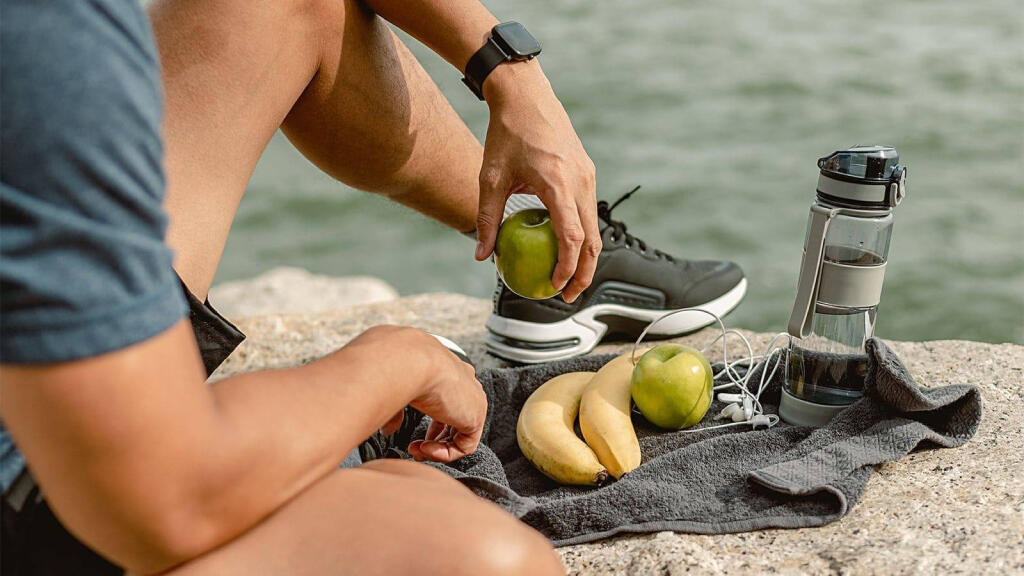Trauma can be an unpleasant and debilitating experience. And injuries often affect various aspects of our daily lives. The recovery process often takes time and patience. However, we have powerful allies to help speed up injury recovery. From our experience, we know that individuals can help themselves. In our therapy, we use manual techniques.
In this article, we’ll look at some valuable tips and advice. You will know how to recover from an injury faster. Here is the relaxation of the muscles to proper hydration. These strategies are designed to optimize the healing process and long-term recovery.
If you have injury, contact All Injury Rehab fo free consultation now!
Whether you’re an athlete looking to get back to peak performance. Or you’re a person looking for relief from chronic pain. Either way, our tips will help you take an active role in your recovery. Let’s dive into fast injury recovery and unlock that potential.

Tip 1. Stay Hydrated
Proper hydration is the first and most important thing in healing injuries. There are several reasons why hydration is so good for your body:
- Improved nutrient delivery. When your body is well hydrated, your blood can effectively deliver needed nutrients. The blood will deliver oxygen to the injured area. It promotes the healing process and provides the necessary resources for tissue repair.
- Improved waste removal. Sufficient hydration helps flush waste products and toxins out of the body. It reduces inflammation. Consequently, it speeds up injury recovery.
- Optimal cell function. As our tests have shown, water is critical to cellular activity. It keeps the body’s functions in balance. By drinking enough water, you create an optimal environment for the cells. They will be able to perform their tasks efficiently.
- Lubrication and flexibility. Hydration helps support the joints and connective tissues. It sort of reduces stiffness and increases flexibility through hydration. It promotes fast injury recovery and the prevention of new ones.
Therefore, remember to drink water regularly throughout the day. Aim for the recommended daily water intake. It depends on individual factors and a person’s activity level. Do not forget about hydration and support your body. It is essential for a speedy recovery.

Tip 2. Focus On Your Mental Recovery
Recovery from trauma is not just about physical recovery. You also need to think about your mental well-being. There are several reasons why you need to pay attention to your mental recovery:
- Positive attitude. Through our knowledge gained in practice, we have learned that the patient must maintain a positive attitude. An image of good thoughts can contribute to a faster recovery. All because it helps reduce stress, anxiety, and depression. And these can get in the way of the healing process.
- Visualization and meditation. If you want to know how to recover from an injury faster, you visualize your healing. You can meditate to relax and lower your perception more. It will help you to feel better.
- Seek support. You can turn to friends or relatives to share your feelings. Support from loved ones can give you emotional strength and motivation.
- Patience and self-compassion. To heal the injury faster, you need to practice self-compassion. Be patient and give yourself time to heal. Be sure to listen to your body and respect its limitations.
Be sure to focus on your mental recovery. And don’t forget to put it alongside the physical. That way, you can create a more holistic and balanced approach to recovery.

Tip 3. Practice Cold Therapy
After a number of experiments, we found that cold therapy can also be an effective method of help. That’s why you should include it in your recovery program:
- Reducing inflammation. Applying cold to the injured area helps constrict blood vessels. This results in less swelling and inflammation. It can be in the process of healing injuries.
- Pain relief. Cold temperatures can anesthetize the area. It will provide temporary pain relief and reduce discomfort.
- Ease of application. Cold therapy can be applied with ice packs, cold compresses, or even immersion in cold water. It makes it a convenient and affordable method of recovery.
Remember, when using cold therapy, it is important to follow the proper guidelines. It is the only way to get fast injury recovery and avoid frostbite. Limit your sessions to 15-20 minutes at a time. Be sure to allow your skin to return to normal temperature before reapplying. It is ideal if you consult with a medical professional before applying. That way, you can get specific recommendations according to your injury.

Tip 4. Rest
Looking for another important aspect of how to recover from an injury faster? Then it’s pretty simple. You just need to rest! That’s why rest is crucial:
- Tissue repair. Rest gives your body the time and energy it needs. That way, you can focus on healing damaged tissues. It allows cellular repair and regeneration to occur more efficiently.
- Inflammation control. Our data shows that rest helps reduce inflammation. You minimize the stress on the affected area. It can prevent further damage and promote the healing process.
- Energy conservation. By resting, you conserve energy directed toward the healing process. It allows the body to direct resources to where they are needed most.
Listen to your body and give yourself the rest you need. Follow your doctor’s recommendations for the amount of rest you need. And that way, you can speed up injury recovery.

Tip 5. Follow Practices for Injury Prevention
Preventing future injuries is just as important as recovering from the current one. Here are some practices to help reduce the risk of future injuries:
- Warm up and stretch. In our experience, you must warm up your muscles before physical activity. So do a little stretching to improve your flexibility.
- Gradual development. To make your healing injuries go more smoothly, gradually increase the intensity. Do the workout and increase the load over time. It will help your body adapt and avoid overexertion.
- Rest and recovery. The order of the day is rest days. This way, you can take your body. It will help prevent future injuries.
- Wear appropriate equipment. If you want to heal the injury faster, use the proper equipment, such as wearing a helmet, a knee brace, or supportive shoes. That way, you can minimize the risk of injury.
Follow these injury prevention rules. That way, you can greatly reduce your chances of getting injured in the future.
Serious Injuries That Require Immediate Treatment
A serious injury requires immediate medical attention. And there are some injuries where you should not self-medicate. Here are some examples of injuries that require immediate care:
- Severe bleeding. Uncontrolled bleeding Can be life-threatening. It requires immediate medical intervention.
- Fractures. Based on our experience, people with fractures are not always willing to go to the hospital. Fractures require urgent evaluation and treatment.
- Head injuries. We don’t think we need to talk about fast injury recovery here. First and foremost, if you have a head injury, you must go to the hospital.
- Deep wounds. Deep cuts require professional evaluation. In extreme cases, you may even be offered stitches. Therefore, if you have received a serious cut and don’t think about how to heal the injury faster, you should go to the hospital.
If you or someone else has been seriously injured, call emergency services or go to the nearest trauma center immediately for emergency medical care.
FAQ
How can I heal my injury naturally?
Rest, proper nutrition, exercise modification, and natural remedies can aid injury healing naturally.
Is sleep important for injury recovery?
Yes, sleep is crucial for injury recovery as it promotes tissue repair and overall healing.
How does nutrition affect injury healing?
Nutrition plays a vital role in injury healing by providing essential nutrients for tissue repair and reducing inflammation.
Can I continue physical activity with an injury?
It depends on the severity and type of injury. Consult with a healthcare professional for guidance.


Related posts
Today is an era dominated by digital conveniences and desk-bound occupations. So, the effects of a sedentary lifestyle have emerged as a pervasive concern.
Our guide aims to equip people with the knowledge to understand the intricacies of internal injuries. They are arising as a result of car accidents. Join us on this informative trip.
Beyond merely treating injuries, chiropractors work to enhance the body's biomechanics. It allows sportsmen to move more potently and reduces the risk of future injuries.